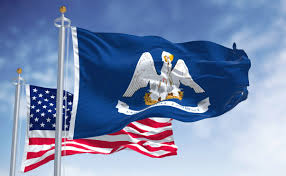
5.28.24 – Goldwater Institute -Heather Curry
Louisiana Governor Jeff Landry this week signed the Welcome Home Act, landmark legislation to universally recognize out-of-state occupational licenses for new workers in the Pelican State. Once in effect, this innovative reform will bring clarity and consistency to Louisiana’s licensing processes, cutting red tape and ensuring government accountability without sacrificing public safety.
Modeled after the Goldwater Institute’s Breaking Down Barriers to Work Act, Louisiana’s reform is one of the broadest in the country, impacting dozens of professions across numerous licensing boards. The new law will allow qualified workers who have already been working out-of-state to apply for and receive an occupational license without having to waste time or money to repeat training or testing.
Championed by Senator Thomas Pressly and Representative Charles Owen, the Welcome Home Act reflects years of efforts on the part of economic freedom advocates in the state. Among other reforms, Louisiana’s House Bill 613 from 2020 created a similar pathway for military families, easing regulatory burdens on America’s service members and helping to pave the way for today’s much broader reform.
Why does this new law matter? Louisiana has long been one of the most onerous states in the country when it comes to occupational licensing regulation. According to the Institute for Justice, the Pelican State licenses 77 of 102 lower-income occupations, with average fees coming in at more than $300. These numbers have put Louisiana in the unenviable position of being the 6th worst state when it comes to licensing burdens.
While it can be a costly effort to receive an initial license in Louisiana, it can be equally challenging for an established, licensed professional to continue working once they move into the state. As the IJ report demonstrates, Louisiana’s requirements are frequently more stringent than other states, resulting in regulatory disparities that can ensnare workers in red tape. Further, final approval for licenses is typically left to the discretion of the boards, making it challenging for even eligible workers to know ahead of time if they will be approved to work.
Fortunately, the Welcome Home Act offers a better way. Under this reform, applicants are eligible to receive a license to work so long they have held an out-of-state license at a similar scope-of-practice for at least one year, are in good standing, and have met the testing or training requirements of their initial licensing state. Veterans and service members who received an occupational license during their time in service are also eligible to apply for a similar license using their military training qualifications. This reform is good for workers seeking to seamlessly get back to work when they cross state lines. It is also good for Louisiana as it looks to attract talented workers into the state.
The Welcome Home Act allows licensing boards to quickly and efficiently compare out-of-state licenses to those in Louisiana using a license’s scope of practice. Any difference in training or education hours is more than made up for in real-world experience gained during the one year an applicant must have held his or her license. Boards retain the ability to deny licenses to applicants who fail to meet the public health and safety standards of the bill.
Louisiana is not alone in adopting this reform. In 2019, Arizona’s legislature enacted the first broad universal recognition licensing law in the country, impacting dozens of licensing boards overseeing a diversity of occupations. In the years since, over 9,000 workers in Arizona have received a license to work under the new law, in professions ranging from medicine to cosmetology to landscape architecture. Dozens of additional states have since enacted similar reforms.
At a time when many American households are struggling to make ends meet, it is essential that policymakers act swiftly to remove the unnecessary hurdles that stand between workers and their right to earn a living. With the Welcome Home Act, Louisiana’s leadership and legislature have done just that, setting a pro-worker example that nearby states like Texas and Florida would be wise to follow.
The Goldwater Institute thanks and applauds Governor Landry and his staff, Senator Pressly and Representative Owen, and the Louisiana legislature for this decisive action in support of Louisiana’s workforce. The Institute was pleased to work alongside the Pelican Institute, the Institute for Justice, and Americans for Prosperity-LA, and is deeply grateful for the numerous supporters of the Welcome Home Act.
Heather Curry is the Director of Strategic Engagement at the Goldwater Institute, where she leads the Institute’s state and national legislative affairs efforts.
